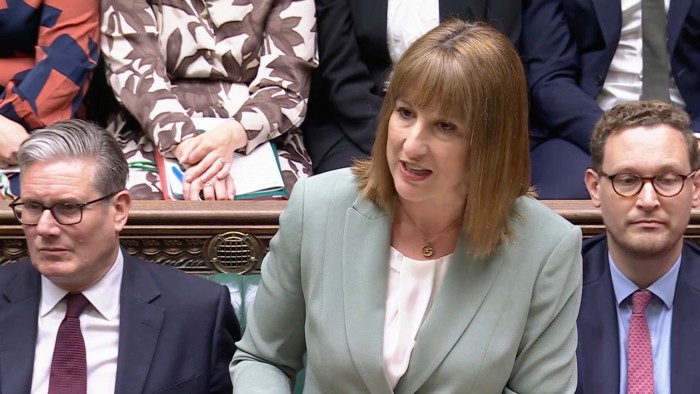Unlock the Editor’s Digest for free
Roula Khalaf, Editor of the FT, selects her favourite stories in this weekly newsletter.
UK chancellor Rachel Reeves has set out day-to-day departmental spending until 2029 and capital budgets until 2030, in Labour’s first comprehensive spending review for 16 years.
“The renewal of Britain must be felt everywhere,” she said on Wednesday. Here are the winners and losers from the spending review.
Winners
Health: The NHS in England has received a 3 per cent real-terms rise in annual day-to-day spending, above health leaders’ expectations but below the long-term growth rate of 3.6 per cent a year.
However, the capital budget of the Department of Health and Social Care will be flat in real terms between 2025-26 and 2029-30.
A rise of 2.8 per cent in the day-to-day budget of the DHSC, which funds the NHS, will take up more than half of the cash increase in the government’s overall expenditure plans.
Defence: Defence spending will rise to 2.6 per cent of GDP by April 2027, including intelligence, with more cash for military spending and the security and intelligence agencies.
This month a long-awaited strategic defence review urged Britain to move to “warfighting readiness” in view of rising threats, while US President Donald Trump has called on European countries to boost military expenditure.
Schools: The core schools budget in England will rise by an average of 0.4 per cent a year between 2025-26 and 2028-29.
All children with a parent receiving universal credit will be eligible for free school meals under an expansion of the scheme, at an estimated cost of £410mn a year by 2028-29.
Losers
Home Office: Average annual day-to-day spending at the Home Office will fall by 1.7 per cent between 2025-26 and 2028-29, according to spending review documents.
But the government said a planned reduction in asylum system costs by 2028-29 would leave the Home Office’s budget bigger by 0.4 per cent overall.
The department is responsible for policing, border security and immigration, and home secretary Yvette Cooper was the last minister holding out for more cash earlier this week.
Foreign Office: Day-to-day spending at the Foreign, Commonwealth and Development Office will fall by 6.9 per cent between 2025-26 and 2028-29, making it the biggest loser among Whitehall departments.
The foreign aid budget, which is managed by the FCDO, has been slashed to fund higher military spending, and the Financial Times reported last month that senior managers were facing a major cull as part of an efficiency drive.
Environment: Day-to-day spending at the Department for Environment, Food and Rural Affairs will drop by 2.7 per cent.
Since the UK left the EU and its Common Agricultural Policy, the department has been responsible for incentive schemes that reward farmers for green activities such as tree planting and less intensive agriculture.






